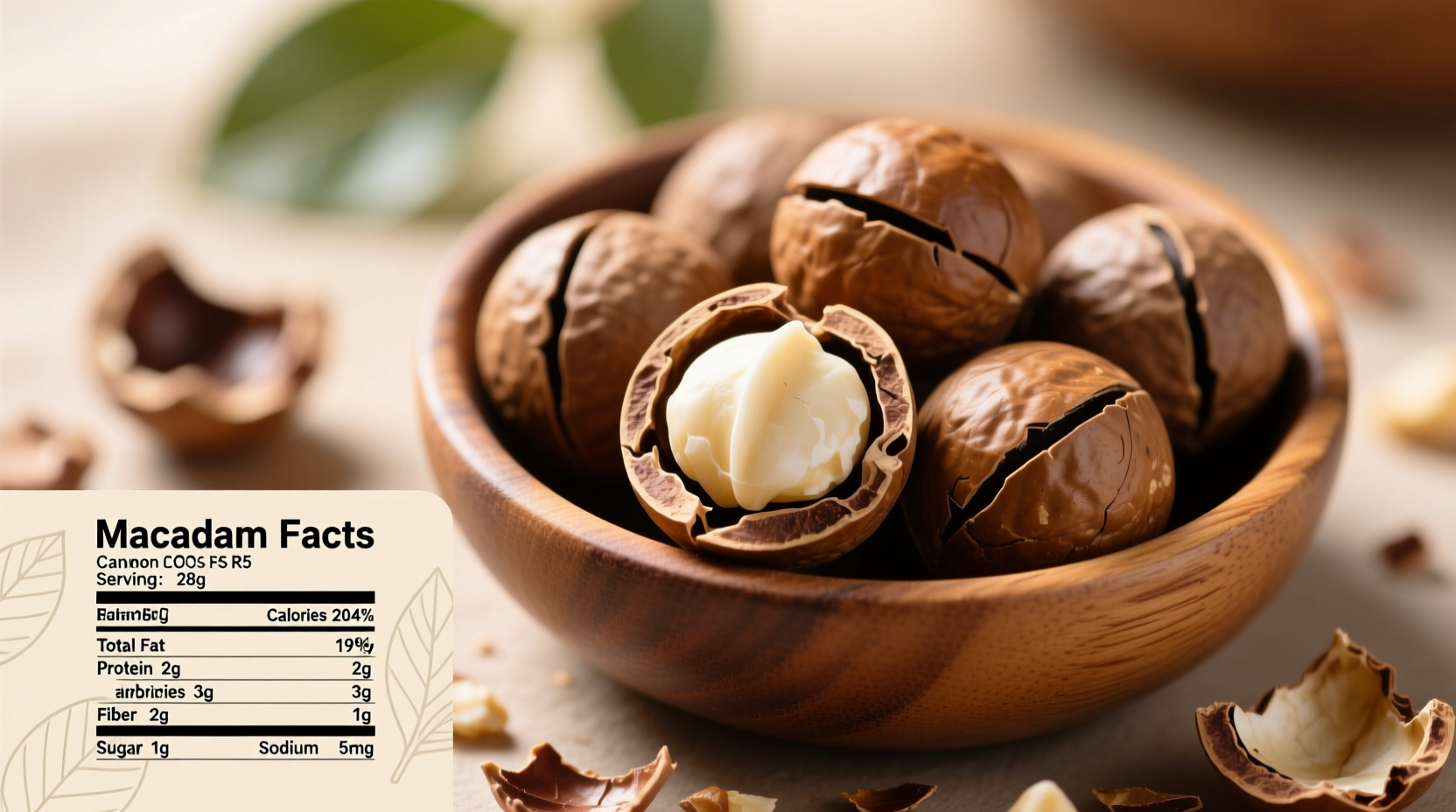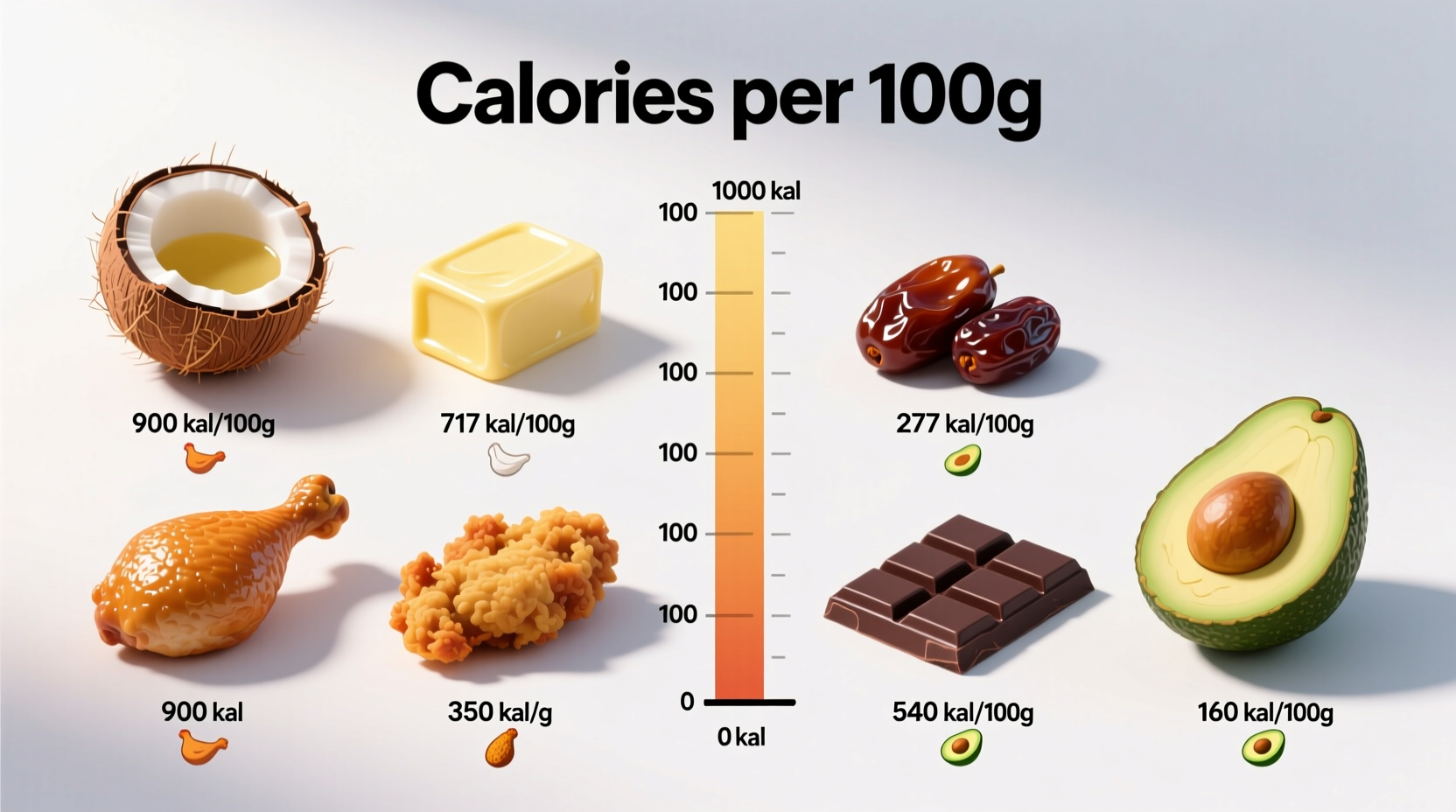The Science Behind Calorie Density
Calorie density measures how many calories exist in a given weight of food. Understanding this concept helps explain why certain foods pack more energy. Fats contain 9 calories per gram—more than double the 4 calories found in both protein and carbohydrates. This fundamental nutritional fact explains why high-fat foods dominate the calorie charts.
According to the USDA FoodData Central, the calorie content of foods directly correlates with their fat composition. This scientific principle has been consistently validated since the pioneering work of chemist Wilbur Atwater in the late 19th century, whose research established the 4-4-9 calorie rule still used today.

Top 5 Highest Calorie Foods: Verified Data
While pure oils technically have the highest calorie count, most people search for whole food options. Here's the scientifically verified ranking based on USDA nutritional databases:
| Food | Calories per 100g | Primary Calorie Source | Nutrient Density Score* |
|---|---|---|---|
| Macadamia nuts | 718 | Fat (76g) | Medium |
| Pine nuts | 673 | Fat (52g) | High |
| Pecans | 691 | Fat (72g) | Medium-High |
| Dark chocolate (70-85%) | 598 | Fat (43g) + Carbs (46g) | Medium |
| Avocado | 160 | Fat (15g) | High |
*Nutrient Density Score reflects vitamins, minerals, and phytonutrients relative to calorie content
When High-Calorie Foods Benefit Your Health
Contrary to popular belief, calorie-dense foods serve important nutritional purposes. Registered dietitians at the Academy of Nutrition and Dietetics emphasize that high-calorie foods are essential for:
- Athletes requiring substantial energy replenishment
- Individuals recovering from serious illness or surgery
- People with hypermetabolic conditions
- Those living in extreme climates requiring additional energy
Macadamia nuts, for example, provide monounsaturated fats that support heart health while delivering substantial energy—a perfect example of nutrient-dense high-calorie food. This represents a significant shift from earlier nutritional thinking that simply categorized all high-calorie foods as "bad," demonstrating how our understanding of calorie context has evolved since the 1980s fat-phobia era.
Practical Guidance for Smart Consumption
Understanding portion control transforms how you incorporate high-calorie foods. A single serving of macadamia nuts (about 12 nuts) contains approximately 200 calories—substantial but manageable within a balanced diet. Consider these practical strategies:
- Measure portions using kitchen scales rather than estimating
- Pair high-calorie foods with volume-rich options like vegetables
- Choose whole food sources over processed high-calorie options
- Time consumption around physical activity for optimal energy utilization
Research published in the American Journal of Clinical Nutrition shows that when consumed in appropriate portions, high-calorie whole foods like nuts actually support weight management by increasing satiety and reducing overall calorie intake throughout the day.
Avoiding Common Misconceptions
Many confuse "high calorie" with "unhealthy," but nutritional science reveals a more nuanced reality. The key distinction lies between empty calories (foods providing energy without nutrients) and nutrient-dense calories (foods delivering both energy and essential nutrients).
Consider these important distinctions:
- Macadamia nuts (718 kcal/100g) provide magnesium, thiamine, and healthy fats
- Donuts (450 kcal/100g) typically offer minimal nutritional value
- Avocado (160 kcal/100g) delivers fiber and heart-healthy fats
- Soda (40 kcal/100g) provides only sugar with no nutritional benefits
This context explains why registered dietitians emphasize food quality over simple calorie counting. The U.S. Department of Health and Human Services dietary guidelines specifically recommend including nutrient-dense high-calorie foods as part of balanced eating patterns.
Conclusion: Quality Over Quantity
While macadamia nuts claim the title of highest-calorie whole food, their nutritional profile makes them a valuable addition to many diets when consumed mindfully. The real nutritional question isn't just "what food has the most calories," but rather "which high-calorie foods deliver the most nutritional value for their energy content." Focusing on whole, minimally processed high-calorie foods ensures you're getting quality nutrients along with that energy density.











 浙公网安备
33010002000092号
浙公网安备
33010002000092号 浙B2-20120091-4
浙B2-20120091-4